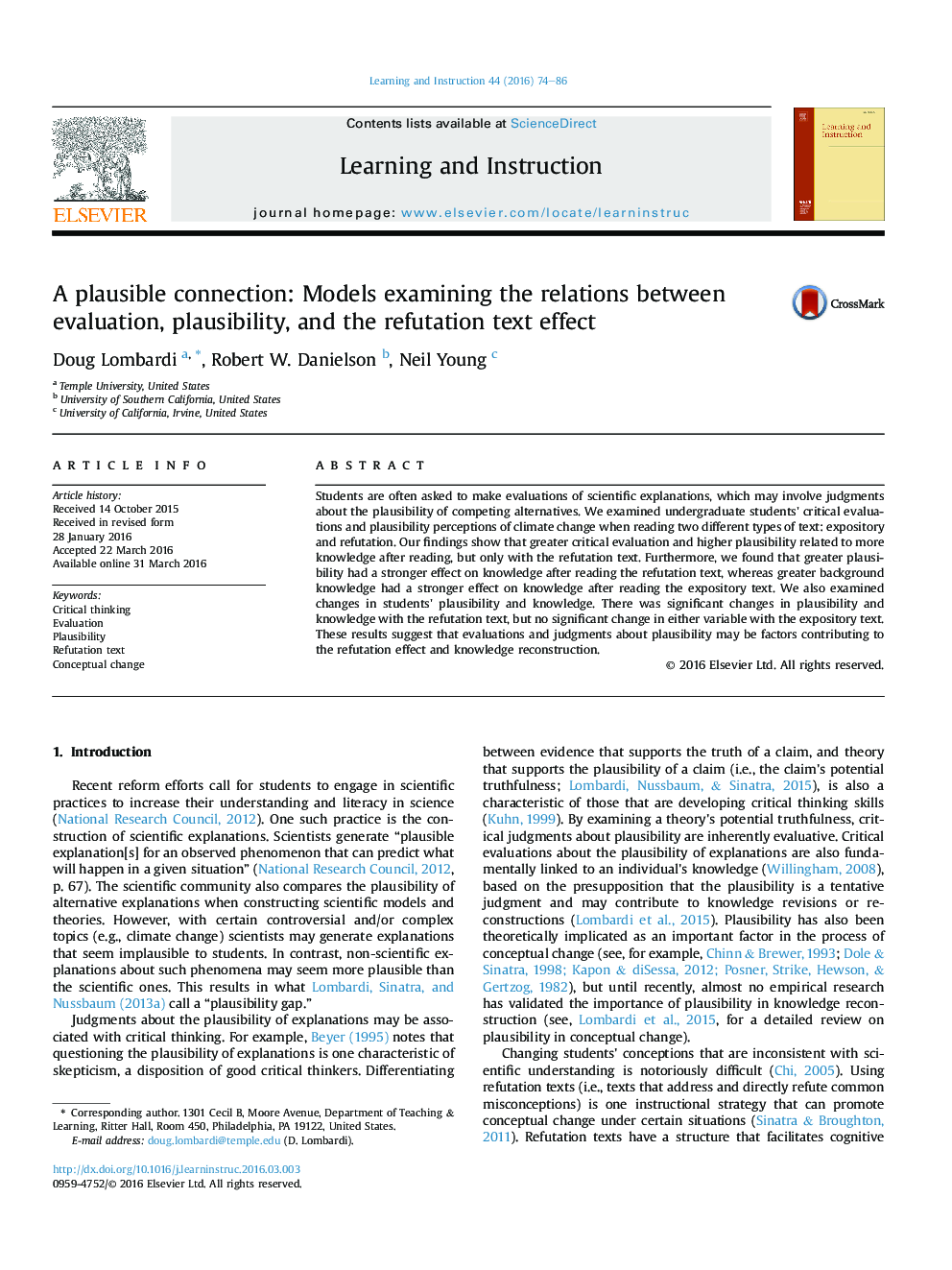| Article ID | Journal | Published Year | Pages | File Type |
|---|---|---|---|---|
| 365474 | Learning and Instruction | 2016 | 13 Pages |
•Critical evaluations of scientific explanations may involve judgments of plausibility.•Refutation texts' may activate students' critical evaluations and reappraisal of plausibility.•Plausibility may draw cognitive activation from incorrect to correct conceptions.
Students are often asked to make evaluations of scientific explanations, which may involve judgments about the plausibility of competing alternatives. We examined undergraduate students' critical evaluations and plausibility perceptions of climate change when reading two different types of text: expository and refutation. Our findings show that greater critical evaluation and higher plausibility related to more knowledge after reading, but only with the refutation text. Furthermore, we found that greater plausibility had a stronger effect on knowledge after reading the refutation text, whereas greater background knowledge had a stronger effect on knowledge after reading the expository text. We also examined changes in students' plausibility and knowledge. There was significant changes in plausibility and knowledge with the refutation text, but no significant change in either variable with the expository text. These results suggest that evaluations and judgments about plausibility may be factors contributing to the refutation effect and knowledge reconstruction.
